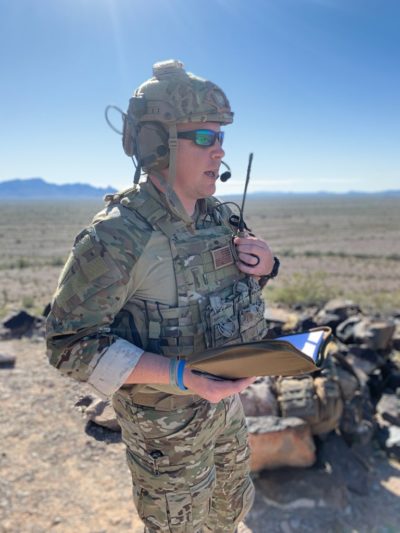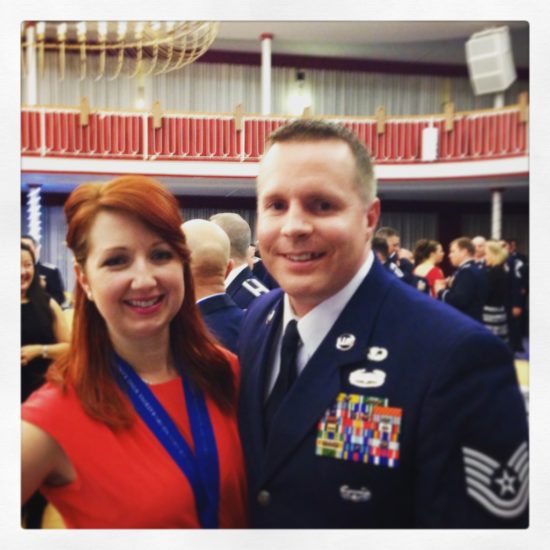Most people hear the word “retirement” and think of something that happens later in life. Generally, it is a time where one stops working and lives off of a company pension, retirement plan, or savings. It evokes images of rest, relaxation, and in truth, old age.
In the military, retirement takes on an entirely different meaning. When I hear that word, I feel terrified.
Military retirement is a goal that is achieved by less than 20% of active-duty service members. If one can stay in service for at least 20 years (in most cases), that person is eligible for a lifetime pension of 50% of his or her base pay; for those that stay in longer, the percentage increases. There are different retirement plans, depending on when one entered service, and military retirement is continuing to change and add benefits such as 401K plans and incentivized retirement during periods of downsizing.
I reiterate that this a lifetime pension. Since many service members begin their careers at a young age, this pension can begin early in life and be counted as a source of income for a significant period of time. Don’t forget that military retirees and their families are eligible for health care coverage, access to base facilities, and even Space-A travel. For more information, you can click here to read all the dos and don’ts of military retirement.

In 3.5 years, my active-duty husband will be eligible for a military retirement at 42 years young. He will receive a livable pension payment for many years while he moves on to another career in the civilian world. We will keep our healthcare with a minimal cost increase. We will still have a source of income to support our family.
So why am I terrified?
Because life outside of the military is unknown for me.
I have been with my spouse since the beginning of his active duty career. It is all I have experienced as an adult and within our marriage. My identity is tied to this role of military spouse, and I have a community here.
What happens when all of it is gone?
Stacey Reynolds, an author and former military spouse, shared this same experience with me during my interview with her for our book club. She talked candidly about the disconnection she felt after retirement; she also pointed out that while the military prepares you financially and logistically for retirement, there is little emotional preparation.
It is a time of great change.

As challenging as military life has been and can be, it is what I’m comfortable with. I know how to manage a house during a deployment.
I know that plans can (and will) frequently change.
My life has been a series of moves and new places. I do not know how to live in one place.
I do not know how to live with a spouse all the time or one with regular work hours. Will I miss the anticipation of a new duty station? Will I even get along with my husband if he is around ALL THE TIME?!
I am nervous that I will not relate to those in civilian life. The military community can have its flaws, but it is an amazing network of support and care. These are people who understand that friendships can be short-lived; that we can rely on one another in nearly any situation; that we must be understanding of distance, time, and space.
We meet people we may never have encountered due to military life, and we are usually the better for it. What if I do not find my community outside of this life and in retirement?
And for all of its instability, the military is a stable life.
Unless there is a government shutdown, your family always has a paycheck. You always have a place to live, even if you do not love the housing options in your area. Medical coverage and care are provided everywhere, generally at no cost. There are discounts for military members and families practically everywhere. Every base or station has numerous free support programs: from concerts and family events to counseling and classes.
My husband will collect a pension, but it will not be enough to support our family of 6. We will have affordable medical insurance and coverage, but it will not be free like it is now. What if he cannot find work right away? What if I cannot find work after 20 years of living inconsistently around the world? My family utilizes the support programs, but these may not be available on the civilian side. What if we lose all this stability?
So while retirement is a good and hard-earned thing, it terrifies me. And in knowing this, I choose to spend the remainder of our active-duty life preparing for this momentous change.
Instead of seeing all the negatives, I will try to see the positives.
I will look forward to having my husband in our family all the time. We will have one reliable source of income for the rest of our lives, regardless of what happens with our careers. And after 20 years of serving his country, my husband can retire as a young man and with pride for his service and dedication.












Thank you for sharing. It is both exciting and terrifying but I totally agree that focusing on the positives and all the wonderful people I’ve met and experiences my family has had, certainly helps. . Still scary though 🙂
Thanks for reading Heather! I’m glad I am not the only person a little fearful of life outside of the military. There are plenty of days where I am frustrated and irritated by this life, but it has given my family and I so much to be thankful for as well.
Comments are closed.